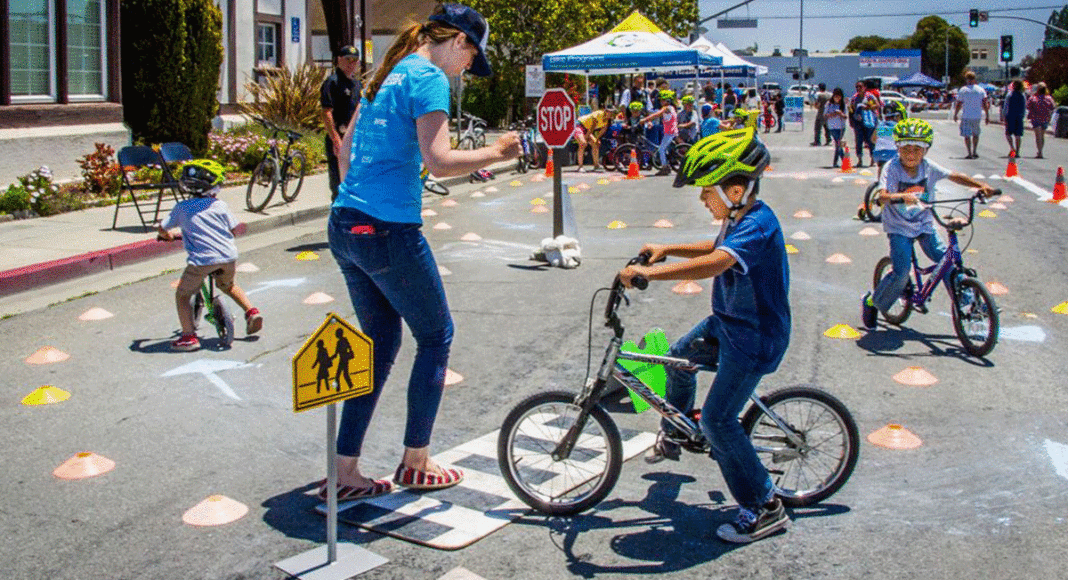Growing up in Watsonville, brothers Brando and Kristian Sencion always noticed a void in their agricultural hometown.
“There’s nothing to do,” says Brando Sencion, a 26-year-old Watsonville High alum and staffer at the nonprofit Santa Cruz Community Ventures. “We’ve always gotta drive somewhere else.”
After years of traveling to nearby cities to try new food or find ways to entertain themselves, the Sencions set out last year to open their own local pizzeria and craft beer taproom called Slice Project. With older brother and chef Kristian, 30, planning the menu, the duo is shooting for a late-summer opening in downtown Watsonville’s 1920s-era Fox Theatre building—and they’re not alone in their quest to jumpstart the city’s sleepy commercial scene.
If all goes according to plan, Watsonville soon won’t just be distinguished by newcomers like Slice Project, Beer Thirty offshoot Beer Mule, the year-and-a-half-old Foreverfly Skate shop, and growing tech-job-training nonprofit Digital Nest. The city is also pursuing multiple avenues to add housing, improve local walkability and redirect planning resources to central neighborhoods that struggle to draw steady foot traffic.
“The city has been really stepping up,” Brando Sencion says, mentioning plans to reduce auto traffic on Main Street, expand sidewalks and add bike lanes downtown. “All that really excites us, because we’re gonna be in the heart of it.”
Reversing years of disinvestment is a tall financial order, but there are also questions like whether revitalizing downtown will exacerbate already fast-rising costs of living and concerns about gentrification. The median price of a home sold in Watsonville has jumped more than 60 percent in the past five years, to about $605,000 at the end of last year, according to real estate data site Zillow.
Beyond that, there’s the issue of reconciling the city’s reputation as a car-centric bedroom community with ambitions of adding new attractions reachable by bike or on foot. As of 2015, Watsonville was California’s most dangerous small city for pedestrians, when state traffic data showed that 39 people were killed or injured on city streets that year.
In January 2018, the city was the first in the county to sign onto a nationwide “Vision Zero” plan to end traffic fatalities. This weekend, on Sunday, June 2, the nonprofit Bike Santa Cruz County will host its fourth Open Streets Watsonville, featuring a kids’ bike safety rodeo and community organizations in a South County version of the event started on the Westside of Santa Cruz.
The entire county has “very blatant issues” with pedestrian safety, says Eric Guerrieri, event director for Bike Santa Cruz County and Open Streets. Though finding up-to-date crash data can be a challenge, the county tracked 197 bicycle injuries and deaths during the last full year on record in 2013, along with 98 pedestrian injuries or deaths.
“Open Streets may be a fun pop-up park, but it is something that we hope will raise awareness,” Guerrieri says.
At least two pedestrian deaths in Watsonville have been reported so far in 2019 as the city reviews plans to add or expand bike lanes on Main, Rodriguez, Lake, and Beach streets. Also on the table are proposals to remove one lane of auto traffic in each direction on Main and Rodriguez streets, and to alter area parking as part of a “downtown complete streets” initiative, for which Watsonville was awarded a $250,000 state grant in 2017.
“As long as it’s just a route for cars on their way to somewhere else, it will never be a community-oriented downtown,” one student wrote in a letter to the city council earlier this month. She described biking downtown as a “crazy, loud, polluted and scary experience.”
At the same time, the city is also grappling with deeply rooted questions about how to fit into a fast-changing Central Coast.
“Truthfully, gentrification worries me,” wrote Watsonville Mayor Francisco Estrada in a recent Santa Cruz Sentinel column. Estrada, a political newcomer, was elected to the city council last fall on a platform of reviving the city without pushing out longtime residents. Redevelopment, Estrada wrote, “must be an inclusive process.”
For the Sencion brothers, carving out a niche in the changing city is a long time coming. Kristian in the past sold pastries like donuts and cinnamon rolls at farmers markets in neighboring cities such as Monterey. Now, Brando says the brothers plan to hire other Watsonville residents and buy local ingredients, and they hope other businesses considering a Watsonville outpost will do the same.
“We’re not trying to make Watsonville something it’s not,” Brando Sencion says. “We want to definitely keep its character and integrity.”
For more info on Slice Project, search Slice Project Pizza on Facebook or Instagram. Open Streets Watsonville will take place Sunday, June 2, from 11 a.m.-4 p.m. around Union and Brennan streets. Free. scopenstreets.org/watsonville.














